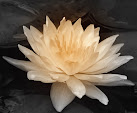”Peace will come on the wings of a promise. Hope will come like the morning's first call. Joy will come on the winds of the Spirit. Love will come. Veni, veni, Redemptor.”
From the song, "Advent Cry" in Joseph Martin’s THE WINTER ROSE
This post has been forming through the recent weeks of Advent, the time in the Christian calendar for celebrating the coming of Christ, a period of glancing backward to the Nativity and reaching forward to the New Heavens and New Earth.
E'en So Lord Jesus, Quickly Come
A Penrod Productions video posted on YouTube by gepenner.
It has been said Paul Manz, the composer of this piece, crafted the perfect blend of text and music. He created it in 1953 during his three-year-old son's serious illness. The words appear below, but I'd like to offer a link to a beautiful blog commentary by "Pastor Peters" who writes:
It is one of those wonderful intersections of music and words where neither is bigger than the other but both form a piece of what is larger than either -- the message understood in the mind with words but felt in the soul with the notes that speak the same message.
You can read it here (well worth it)
E’en so Lord Jesus Quickly Come
Peace be to you and grace from him
Who freed us from our sins.
Who loved us all and shed his blood
That we might saved be.
Sing Holy, Holy to our Lord
The Lord, Almighty God
Who was, and is, and is to come
Sing Holy, Holy Lord.
Rejoice in heaven, all ye that dwell therein,
Rejoice on earth, ye saints below.
For Christ is coming, is coming soon.
For Christ is coming soon.
E'en so Lord Jesus, quickly come,
And night shall be no more;
They need no light nor lamp nor sun
For Christ will be their all!
lyrics by Paul Manz
Two things worth noticing about the well-produced video (even if the clarity is imperfect). The music by the Kansas City Chorale from the album, Alleluia- An American Hymnal. The statue pictured (I've reproduced it below) from St. Sebastian Cemetery, Salzburg Austria that so perfectly depicts the condition of man in a world of darkness.
picture from visit-salzburg.net
If I were to choose a favorite prayer to God, it might be, “Come!”
Every time and every place across the world this prayer is prayed, there is hope. The word is not only a plea to the Lord, but is often used as the Lord’s invitation to His people.
I am reminded of the antiphons congregations spoke between verses of "O Come, O Come, Emmanuel" when I was a child. It's not done so much today, but it is beautiful because the combination describes Jesus. He is: Emmanuel, Wisdom, Adonai, Root of Jesse, Key of David, Dayspring, King of the Gentiles.
Which brings me to the "Root of Jesse." How, I wondered then, could the well known house-painter gentleman in our home church named, Jesse, have anything to do with the coming of Jesus? Of course years later it became clear the Jesse referred to was the father of David.
And notice the meanings of the following names:
Obed (father of Jesse) means servant, worshiper
Jesse (father of David) means God exists or God's gift
David means beloved
Jesus (its Aramaic and Hebrew origins) means Yahweh's salvation
Our plea during Advent is for the Servant Gift Beloved Savior, Jesus, to come to earth. But there is so much more to the little word, "come," as shown in the last chapter of Revelation, the very chapter whose words inspired the song above.
“I am the Alpha and the Omega, the First and the Last, the Beginning and the End . . . I am the Root and the Offspring of David” . . . And let him who hears say, “Come!” Whoever is thirsty, let him come; and whoever wishes, let him take the free gift of the water of life . . . “Yes, I am coming soon.”
Amen. Come, Lord Jesus!
